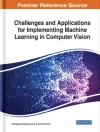Artificial Intelligence is a seemingly neutral technology, but it is increasingly used to manage workforces and make decisions to hire and fire employees. Its proliferation in the workplace gives the impression of a fairer, more efficient system of management. A machine can’t discriminate, after all.
Augmented Exploitation explores the reality of the impact of AI on workers’ lives. While the consensus is that AI is a completely new way of managing a workplace, the authors show that, on the contrary, AI is used as most technologies are used under capitalism: as a smokescreen that hides the deep exploitation of workers.
Going beyond platform work and the gig economy, the authors explore emerging forms of algorithmic governance and AI-augmented apps that have been developed to utilise innovative ways to collect data about workers and consumers, as well as to keep wages and worker representation under control. They also show that workers are not taking this lying down, providing case studies of new and exciting form of resistance that are springing up across the globe.
สารบัญ
Figures
Series Preface
Acknowledgements
Introduction: AI: Making it, Faking it, Breaking it – Phoebe V. Moore and Jamie Woodcock
PART I – MAKING IT
1. AI Trainers: Who is the Smart Worker Today? – Phoebe V. Moore
2. Work Now, Profit Later: AI Between Capital, Labour and Regulation – Toni Prug and Paško Bilić
3. Delivering Food on Bikes: Between Machinic Subordination and Autonomy in the Algorithmic Workplace – Benjamin Herr
4. Putting the Habitus to Work: Digital Prosumption, Surveillance and Distinction – Eduard Müller
5. The Power of Prediction: People Analytics at Work – Uwe Vormbusch and Peter Kels
PART II – FAKING IT
6. Manufacturing Consent in the Gig Economy – Luca Perrig
7. Automated and Autonomous? Technologies Mediating the Exertion and Perception of Labour Control – Beatriz Casas González
8. Can Robots Produce Customer Confidence? Contradictions Among Automation, New Mechanisms of Control and Resistances in the Banking Labour Process – Giorgio Boccardo
PART III – BREAKING IT
9. It Gets Better With Age: AI and the Labour Process in Old and New Gig-Economy Firms – Adam Badger
10. Self-Tracking and Sousveillance at Work: Insights from Human-Computer Interaction and Social Science – Marta E. Cecchinato, Sandy J. J. Gould and Frederick Harry Pitts
11. Breaking Digital Atomisation: Resistant Cultures of Solidarity in Platform-Based Courier Work – Heiner Heiland and Simon Schaupp
12. Resisting the Algorithmic Boss: Guessing, Gaming, Reframing and Contesting Rules in App-Based Management – Joanna Bronowicka and Mirela Ivanova
Notes on Contributors
Index
เกี่ยวกับผู้แต่ง
Jamie Woodcock is a researcher based in London. He is the author of The Gig Economy (Polity Press, 2019), Marx at the Arcade (Haymarket, 2019), and Working The Phones (Pluto, 2016). His research focuses on labour, work, the gig economy, platforms, resistance, organising, and videogames.












